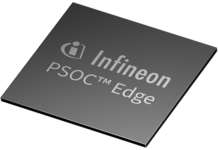The hospitality sector is witnessing an unprecedented transformation, thanks to the integration of IoT and AI technologies. These advancements are not just advancing operations but also changing how hotels engage with their guests and meet their rising expectations.
A study conducted by Oracle Hospitality in collaboration with Skift reveals that travelers are increasingly seeking to personalize their journeys by selecting specific rooms and floors, as well as paying only for the amenities they desire. Additionally, a significant 68% expressed interest in exploring properties in the metaverse beforehand. Moreover, 74% are keen on hotels utilizing AI to enhance services and offers, such as customized room pricing or food recommendations and discounts. Nearly 40% of hotel executives perceive this ‘unbundled’ model as the future of hotel revenue management.
Also, personalized offers not only make customers feel special but also save time and simplify decision-making. This mix of convenience and emotional appeal can result in an 8x return on marketing investment (ROI) and increase sales by at least 10%.
The projected growth of the Travel & Hospitality AI Market, expected to surpass $1.2 billion by 2026, highlights the increasing role of AI in redefining the hotel industry. Beyond operational enhancements, IoT & AI is playing a crucial role in delivering personalized guest services, fundamentally altering how individuals experience their hotel stays.
Let us understand how IoT and AI technologies are driving this shift in guest services, meeting the ever-changing expectations of modern travelers.
Data to Deliver Personalized Experiences
AI-powered systems leverage vast amounts of data to understand individual guest preferences and behaviors, enabling the delivery of hyper-personalized offerings. The algorithms analyze past interactions and stay patterns to generate tailored recommendations and promotions that actually add value and are not generic and also significantly increase conversion rates.
Contextualized Assistance with In-App Notifications
Integration of AI and machine learning in hotel mobile applications allows the delivery of contextually relevant assistance to guests. Real-time analysis of data such as location and preferences enables these apps to offer personalized recommendations, exclusive deals, and timely updates, enhancing the overall guest experience and promoting deeper engagement.
Enhancing Interaction with Adaptive UI
Hotels can employ Adaptive User Interfaces (AUI) to optimize guest interactions based on individual preferences and behaviors. Whether it’s adjusting website layouts or in-room interfaces, AUI ensures intuitive management of user experiences designed for each guest’s unique needs, driving satisfaction and loyalty.
Proactive Engagement through Automated Communication
AI-driven systems enable hotels to engage guests proactively by digging into historical data to predict future preferences and needs. Through targeted communication, hotels can deliver timely and relevant information, such as pre-arrival reminders and destination-specific recommendations, enhancing the overall stay experience and strengthening guest relationships.
To Conclude
The convergence of IoT and AI technologies is reimagining guest services in the hospitality industry. From delivering data-driven personalized experiences to offering contextually relevant assistance through mobile apps, these innovations are setting new standards for hospitality, which is unprecedented. As IoT & AI adoption continues to grow, personalized guest services will remain integral to hotel differentiation and success, ensuring experiences that delight guests and drive sustainable business growth.















